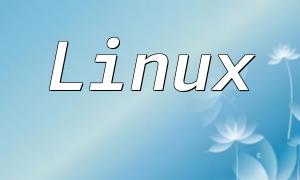In programming languages, variable declaration is a fundamental yet crucial part. The differences in how variables are declared in different languages directly affect code flexibility, safety, and development efficiency. PHP and C language, as two commonly used programming languages, have significant differences in variable declaration. This article delves into the differences between them to provide developers with valuable insights.
In PHP, variables start with a dollar sign ($) followed by the variable name. As a dynamically typed language, PHP does not require developers to specify the data type when declaring a variable. The type of a variable can change at runtime based on the assigned value, offering great flexibility to developers. Here's an example of variable declaration in PHP:
In the above example, the variable $myVariable is assigned a string value, and it can easily be changed to another data type, such as an integer or array. Due to PHP's dynamic typing, developers don't need to worry about specifying data types during variable declaration, making PHP popular for web development.
Some characteristics of variables in PHP include:
In contrast to PHP, C language is a statically typed language. It requires developers to specify the data type of a variable before using it. Variable declarations in C are typically done at the beginning of a function or globally. Here's an example of variable declaration in C:
In this example, the variable myVariable is declared as an integer (int) and initialized with the value 5. In C, the type of the variable is determined at compile-time, so developers must think ahead about the data type when writing code. This static typing feature enhances type safety and reduces the potential for runtime errors.
Some key features of variables in C language include:
From the above analysis, it is clear that there are significant differences in variable declaration between PHP and C language. These differences not only affect how the code is written but also have a direct impact on the performance and flexibility of the program.
PHP's dynamic typing offers greater flexibility for developers but may lead to runtime errors. On the other hand, C language's static typing, while requiring more planning and consideration during code writing, provides stronger type safety and helps reduce potential errors.
PHP is typically used for web development, particularly for rapid development and prototyping. C language, however, excels in system programming and embedded development, where direct access to hardware or high performance is required.
In conclusion, the variable declaration methods in PHP and C language have their respective advantages and drawbacks. PHP, due to its flexibility, is more suited for web development and rapid prototyping, while C language, with its static typing and efficiency, is widely used in system programming and embedded systems. Developers should choose the appropriate programming language based on the specific project requirements and development environment.









